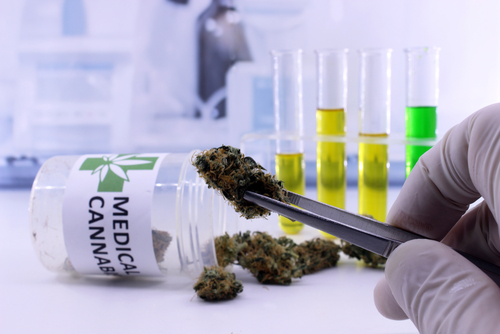Israel’s Volcani Center plans to submit new patent applications covering the use of a unique formulation of active compounds extracted from the cannabis plant as treatment for cutaneous T-cell lymphoma (CTCL).
Further development and marketing of the treatment will be done by Canada-based cannabis pharmaceutical company MedC Biopharma Corp.
“We are pleased that our investments in the development of cannabis-based medication for CTCL [have] matured into breakthrough discoveries and resulting patents,” Avi Drori, chairman of MedC Corp., said in a press release. “We look forward to commencing clinical trials, so we can finally bring hope to patients worldwide seeking a cure for this terrible disease.”
The Agricultural Research Organization (ARO) Volcani and MedC established a global licensing agreement, according to which MedC will acquire exclusive rights over the new CTCL patents.
“We are delighted that our collaborative efforts with MedC will provide them with the intellectual property that will help pave the way in treating CTCL,” said Hinanit Koltai, professor at Volcani Center.
MedC will jointly develop ARO Volcani’s cannabis-derived products and formulations for CTLC and other cancers, as well as for inflammation and psychological disorders, with Canada’s AgMedica Bioscience, under the terms of an exclusive strategic investment and cooperation agreement signed in September 2018.
The companies will focus their management and scientific teams in Canada and Israel to expedite development of new cannabis-based therapeutic products that have provided evidence of benefit to patients.
MedC expects to launch the clinical program of a cannabis-based therapy for CTCL soon.
“We are very pleased with our investment and strategic partnership with MedC, which represents a strong base for extending the range of our pharma-cannabis products and enabling us to deliver higher-quality results with a shorter time to market,” Trevor Henry, CEO of AgMedica, said in a press release.
“This agreement enables AgMedica and MedC to take a leadership role in the development of medicines that can confirm the therapeutic value of cannabis and cannabis-derived products while also meeting the stringent thresholds of essential clinical data required to ascertain appropriate dosing,” he said.


